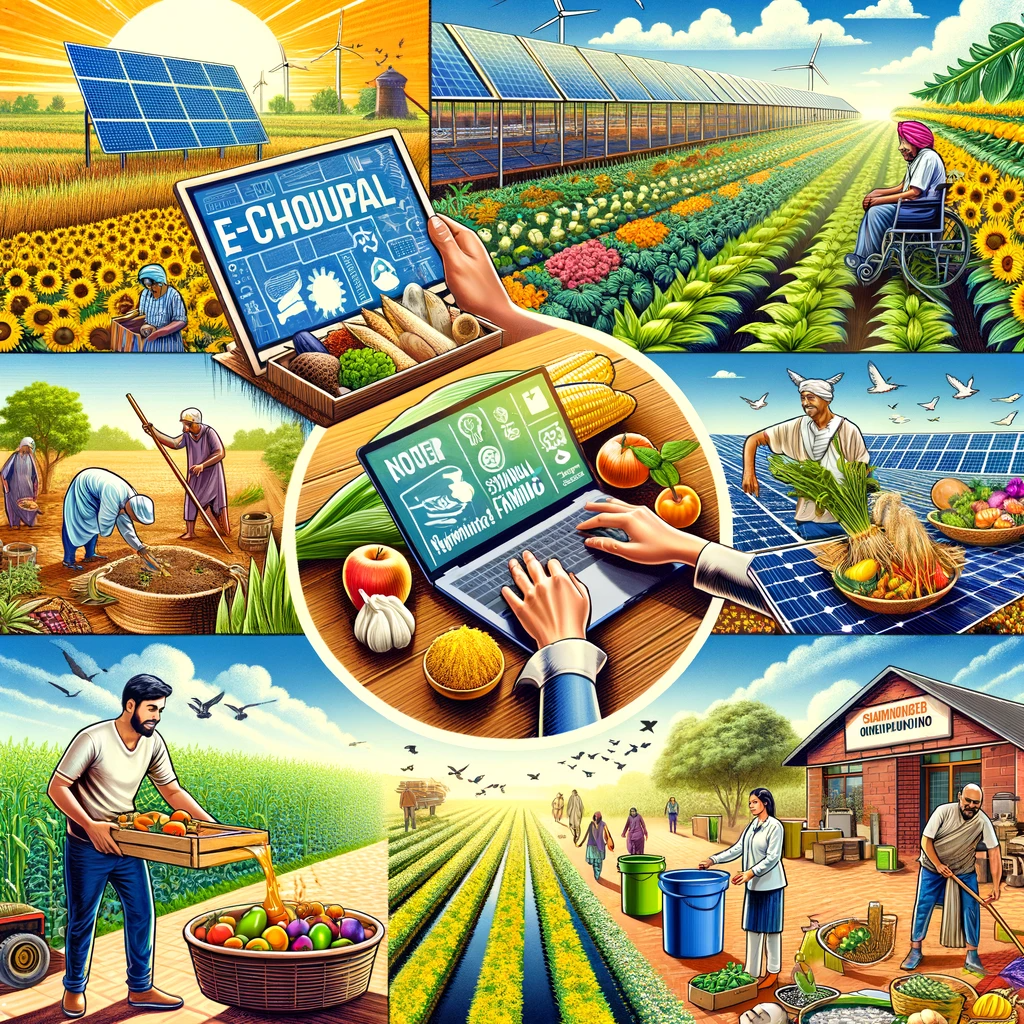Introduction:
In a world grappling with the twin challenges of food insecurity and environmental sustainability, the focus on building food self-sufficiency and reducing food wastage has never been more critical. India, with its vast population and agricultural heritage, stands at a pivotal juncture. The country’s journey towards self-sufficiency in food production and minimizing waste is not just a matter of national importance but also a significant contributor to global food security.
The Imperative of Food Self-Sufficiency:
Understanding Self-Sufficiency
Food self-sufficiency refers to the ability of a country to meet its food needs from its own production rather than relying on imports. For India, achieving this means ensuring that its agricultural sector is robust, sustainable, and capable of withstanding global market fluctuations and climatic changes.
Strategies for Self-Sufficiency
- Enhanced Productivity: Leveraging advanced agricultural practices and technology to increase crop yields.
- Diversification of Crops: Encouraging the cultivation of a variety of crops to mitigate risks associated with mono-cropping.
- Sustainable Practices: Adopting methods that improve soil health, conserve water, and reduce the carbon footprint of agriculture.
Combating Food Wastage:
The Scale of the Problem
In India, a significant amount of food is wasted due to inefficiencies in the supply chain, from harvesting, processing, transporting to consuming. Addressing this wastage is imperative not just for food security but also for environmental conservation.
Innovative Solutions to Reduce Wastage
- Improved Storage and Transportation: Investing in better storage facilities and transportation methods to reduce spoilage.
- Supply Chain Optimization: Utilizing technology to streamline the supply chain and reduce inefficiencies.
- Consumer Awareness: Educating consumers about food preservation and waste reduction.
Case Studies:
E-Choupal Initiative by ITC
Background: ITC’s e-Choupal initiative is a pioneering effort to connect rural farmers in India to the internet for the first time.
Objective: To empower small farmers with timely and relevant information to enable informed decision-making and create a more efficient supply chain.
Implementation:
- Established internet kiosks in rural areas where farmers can access a wide range of information, including weather forecasts, modern farming techniques, market prices, and more.
- Helped in reducing transaction costs and providing transparent and fair price discovery mechanisms.
Impact:
- Enhanced farmers’ ability to make better decisions, leading to improved productivity and higher quality produce.
- Reduced costs and wastage in the supply chain, leading to higher farmer incomes and more efficient markets.
Challenges and Opportunities:
While the goals are clear, the path is fraught with challenges, including climate change, resource limitations, and infrastructural gaps. However, these challenges also present opportunities for innovation, collaboration, and a renewed focus on sustainable development.
Conclusion:
Building food self-sufficiency and reducing wastage in India is a multifaceted challenge that requires coordinated efforts across various sectors. By adopting a holistic approach that encompasses technological innovation, policy support, and community participation, India can chart a sustainable path towards a secure food future.

